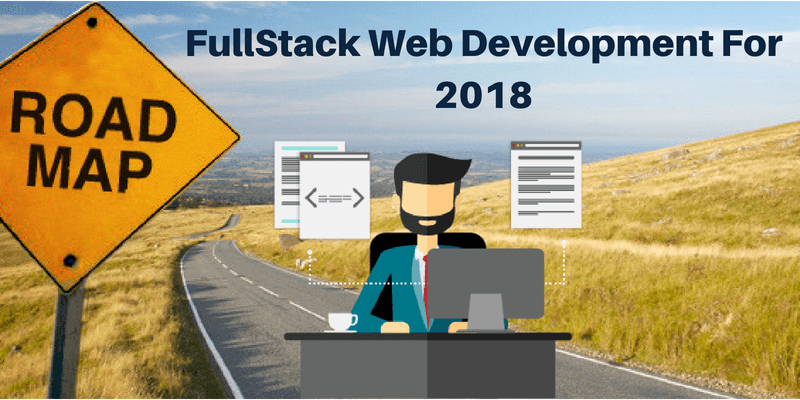Broadly speaking, building web applications is both incredibly simple as well as absurdly complicated. It just depends on which route you take. You can build them within hours, using templates and drag-and-drop tools without writing a single line of code. Or you can choose to go for custom-built that will take weeks of time and expertise over a large set of specialized tools. The difference as you would expect lies in quality.
The first kind will definitely serve you well if you building it as a hobby or a school project but if you expect to build a business upon it, it is the second kind of development that you need. And that is where Full Stack development comes in.
So whether you are already a full stack developer or aspire to master requisite skills to become one in future, these are the tools and technologies that will remain the key in 2018 and possibly beyond:
For the sake of clarity, we’ll just partition them into their specific domain of application.
Front-end development
HTML and CSS
This should go without saying- HTML was and will (at least until foreseeable future) remain the founding pillar of web applications and CSS the tool for aesthetic makeup. Both of these essentially create the container in which features and content can be later filled.
JavaScript
HTML and CSS can make only static pages but if you want your application to have enhanced user experience through dynamic content, animation, etc, you would need to deploy JavaScript. And while there are many JavaScript frameworks and libraries available, Angular and React remain the most widely used.
- AngularJS
Offered and largely maintained by Google, this open source framework is today the most popular framework for building an interface for web applications. Along with the fact that it is simple to use and comes packed with a lot of features, one key attraction remains that it is highly compatible for use on mobile devices as well.
- ReactJS
If you plan to deal with dynamic content loading (without reloading the page) on your web application, ReactJS is the best tool for the purpose.
Related: Do You Know Everything About Full Stack Development?
Back-end development
NodeJS
While there numerous technologies that can be used for server-side programming, NodeJS in recent times has emerged as the de-facto choice for most. It is lightweight, simple to code, and most importantly, blazing-fast- everything expected from server-side scripts. Additionally, running on Chrome’s V8 engine and relying on asynchronous communication, it is known to scale fluidly and is most suitable for applications like games and streaming services that need to fetch data in real-time.
Python
If there is an underdog in web development, it ought to be Python. Though it is feature-rich, powerful, scalable, has ample supporting tools, it generally isn’t counted in mainstream web development languages. But if you have to develop a website that is large, robust, and secure, Python can get you a long way. While there are countless numbers of frameworks and micro-frameworks available for Python, Django and Flask remain the most widely used- something you must add to your skill-set.
Tools
Webpack
As much as modular programming contributes to speed and efficiency to the development cycle, managing them all with their corresponding dependencies can be sometimes a nightmare for developers. With Webpack, developers can bundle all such modules into a single package along with a simplified dependency graph to help them keep track of functionalities in case any updates are needed in the future.
Git
Used by almost all seasoned developers and companies for version management, Git and Github is something you will have to get acquainted with at one point or another. After all, full-stack web development isn’t just about the programming skills but also deployment strategies and how you manage the corresponding code. And when it comes to such tasks, it is a tool universally used by all developers.


